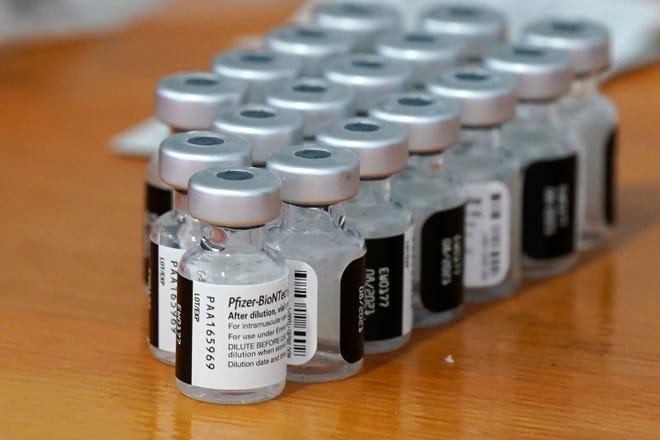
A 26-year-old New Zealand man has died from myocarditis linked to the Pfizer vaccine, but health officials there said Monday that the benefits of the vaccine continue to "greatly outweigh" the risks.
Myocarditis, an inflammation that in some cases can limit the heart's ability to properly pump blood, has been detected in a small number of vaccinated people. It is treatable, is not specific to COVID-19 vaccines and was a common side effect of the smallpox vaccine in the past, according to the U.S. Centers for Disease Control and Prevention.
The man died within two weeks of receiving his first dose, and a coroner determined that preliminary information has identified myocarditis as the probable cause of death, New Zealand's COVID-19 Vaccine Independent Safety Monitoring Board said in a statement. The man had not sought medical advice or treatment for his symptoms.
"With the current available information, the board has considered that the myocarditis was probably due to vaccination in this individual," the monitoring board's statement said. "The benefits of vaccination with the Pfizer vaccine for COVID-19 continue to greatly outweigh the risk of such rare side effects."
The statement added that the COVID-19 infection can itself be a cause of myocarditis as well as other serious illnesses.
The case was one of three the board has been reviewing since Dec. 8. The death of a 13-year-old child will require further information before a determination on the role of the vaccine can be made, the board said. And the myocarditis implicated in the death of a man in his 60s was unlikely related to vaccination, according to the statement.

The CDC, in an update on myocarditis and the COVID-19 vaccines published last month, said the cases are rare and occur most often after the second dose. The symptoms – chest pain, shortness of breath and feelings of having a fast-beating, fluttering or pounding heart – usually present within a week of vaccination.
COVID IS THE DANGER: Rate of myocarditis slightly higher in young peopleafter COVID vaccine, CDC finds, but coronavirus is more dangerous
Most patients who received care responded well to medicine and rest and felt better quickly. Patients can usually return to their normal daily activities after their symptoms improve, the CDC said.
"The known risks of COVID-19 illness and its related, possibly severe complications, such as long-term health problems, hospitalization and even death, far outweigh the potential risks of having a rare adverse reaction to vaccination, including the possible risk of myocarditis,' the CDC said.
Source link









